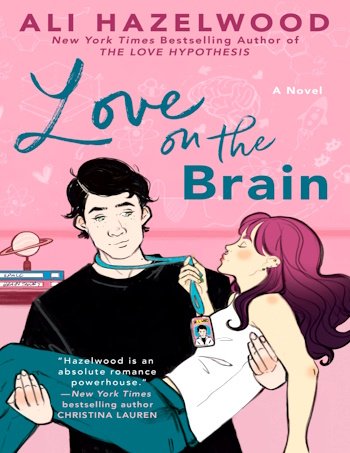“Are you mad that she’s gone?”
Ah, children. And their loaded questions. “I used to be. But now I’m just a bit . . . sad. But it’s okay. She needs to travel just as much as I need to stay put.”
“My friend said that if you’re a twin, your children will be twins, too.”
“You have a higher probability, yes.”
“Do you want twins?”
“Penny,” Lily reprimands her gently, “no grilling guests on family planning before lunch.”
“Oh, that’s fine. I would love to have twins.” I used to dream of it, actually. Even though at this point I probably won’t. For obvious reasons.
That I won’t bother Penny with.
She smiles. “That’s good, because so does Levi.”
“Oh. Oh, I—” I feel myself go crimson and look at Levi, expecting to find him just as embarrassed, but he’s staring at me with the same expression from before, only about twenty times more intense, and—
“Does anyone want sherbet?” Lily asks, clearly picking up on the weirdness.
“Mother,” Penny says darkly, “must you torture me?”
“I got special ice cream at the store for you.” Penny’s eyes widen and she runs inside the house. “Poor girl,” Lily mutters as we follow her inside. “Keto ice cream’s probably disgusting.”
“You underestimate how desperate she might be,” I tell her. “There are things I used to find appalling after going vegan that I started loving out of—
”
“Bee! Bee! Look, I want to show you something!” “What’s that?” I smile and crouch to her height.
“This is Shaggy, my—”
My eyes fall on the stuffed tarantula plush toy in her hands, and sound recedes. My vision fogs. I’m hot and cold at the same time, and all of a sudden, everything goes dark.
• • •
“THAT WAS SO cool! Levi, I love your girlfriend soooo much!”
“I know the feeling.”
“Goodness. Should I call 911?”
“Nah, she’s fine.” Everything’s foggy, but I think I’m in Levi’s arms. He’s patiently holding my head up, no concern in his tone. In fact, he sounds weirdly charmed. “This
happens to her every other day.”
“Slander,” I mumble, fighting to open my eyes. “Lies.”
He smiles down at me and—he’s so handsome. I love his face. “Look who’s gracing us with her presence.”
“Is it low blood sugar?” Lily asks apprehensively. “Can I get you anything to—?”
“Bee is like me!” Penny is saying, clapping her hands excitedly. “She has the same bursts of electricity in her brain! She has seizures!”
“It’s a bit like seizures,” I say, straightening up.
“Bee has a useless parasympathetic nervous system, which is an endless source of entertainment,” Levi explains to Penny.
“Excuse me.” I scowl. “Some of us don’t have the luxury of stable blood pressure.”
“I didn’t say it wasn’t cute,” he murmurs inaudibly against my temple.
The scratch of his stubble against my skin is rough. His lips, soft.
Penny seems to be a fan, too. “Does your twin faint, too?”
“Nope. She got all the best things.” Like the ability to burp the French national anthem.
“It’s so cool!”
“It’s actually a very maladaptive autonomic response.”
“Can you do it again?”
“Not really, sweetie. Not on command.”
“When do you do it, then?”

























